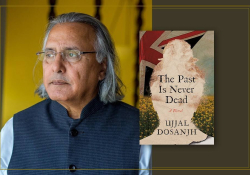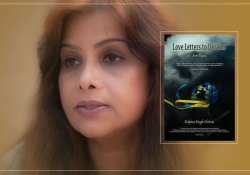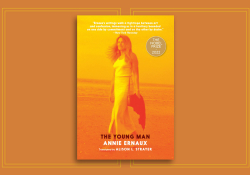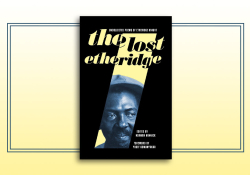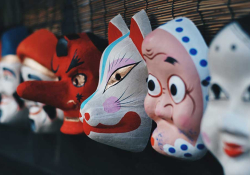Leopardi on Leopardi
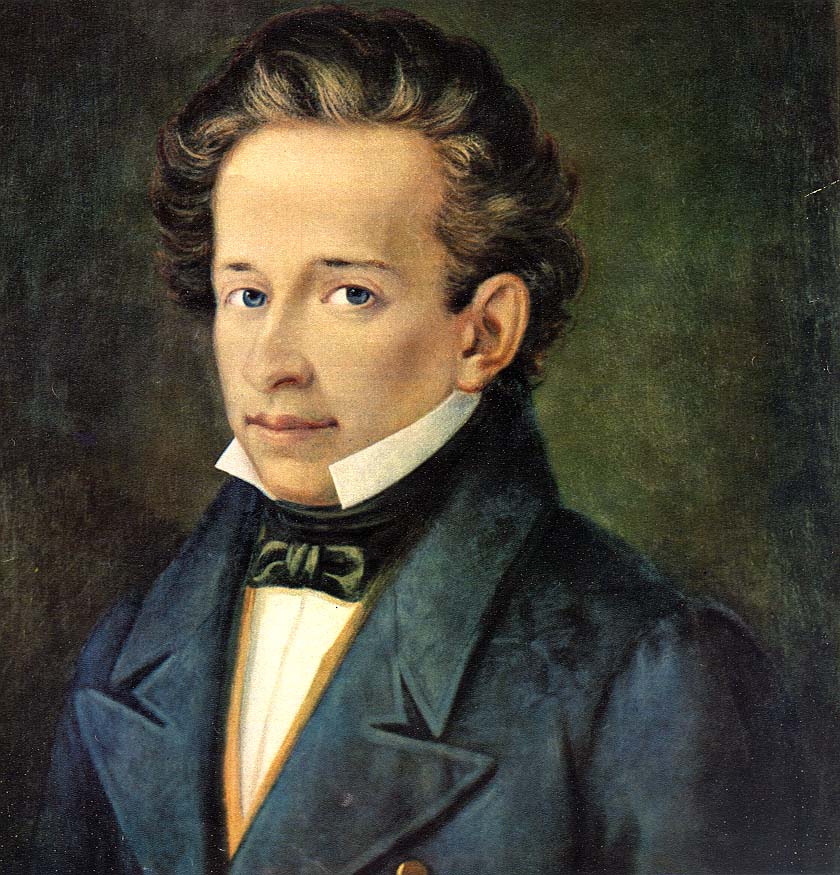
(Casa Leopardi, Recanati, Italy, 1820). Source: Wikipedia.
A review of Zibaldone, by Giacomo Leopardi. Ed. Michael Caesar & Franco D’Intino. Trans. Kathleen Baldwin, Richard Dixon, David Gibbons, Ann Goldstein, Gerard Slowey, Martin Thom, and Pamela Williams. New York: Farrar, Straus and Giroux, 2013.
Leopardi’s poetry is glorious, his Operette Morali is daring, his letters are intimate, but it is in Zibaldone that he says, “No one thing shows the greatness and power of the human intellect or the loftiness and nobility of man more than his ability to know and to understand fully and feel strongly his own smallness.”
Zibaldone is Leopardi’s notebook, kept from 1817 to 1832. It is the place where he is purely himself, depression and all. In Zibaldone, he stirs his hurts and obsessions, minutiae and infinities, humdrum trivia, and thoughts raw and howling. He introduces problems, gets tangled up in them, and cuts loose. It is a language-lover’s book to savor page by page and a sea of tears into which you can dip. It is a workshop where, amid dust and clutter, great projects took shape.
There are many ways to read it, some better, some worse. It can be read in parts, assisted by its index, or dabbled in randomly. Hurried youth and silvered literati will prefer it in pieces. It can be read backward, seeking (as Leopardi did) the origins of things. One can skip around it like a goat and call it pastoral. Few have ever read all of it, says Iris Origo, Leopardi’s biographer, “but no one knows Leopardi who is not acquainted with it.”[1]
In Zibaldone, Leopardi stirs his hurts and obsessions, minutiae and infinities, humdrum trivia, and thoughts raw and howling. . . . Zibaldone is the reckoning of a genius in the flower of youth.
In Zibaldone, Leopardi accreted anecdotes, study notes, specimen quotations, momentary inspirations, woe, regrets, and wretchedness. His was a brilliant mind in a bent body. He wrote, “Nature and the beautiful were made not for him but for others.” Rejected by Nature, he rejected science. Like the Cahiers of Paul Valéry and the notebooks of Emerson, Zibaldone is a place where science and poetry collide, where the life of the mind bumps against mortality. Written over lifetimes, the notebooks of Emerson and Valéry have the advantages of age, seeing more, and looking further back. Zibaldone is the reckoning of a genius in the flower of youth.
Its thousands of closely printed pages defy rapid reading. There is much reading behind Zibaldone, much about reading in it, much that only Leopardi could explain, and some that even he no longer understood. To read it from end to end is a long walk through dark and thorny spaces. Because of its demands, expanse, and detail, its English translation is a world-class accomplishment. It required immense dedication. Weigh it, open it, sample and see how great an achievement it is—a big, complicated job that took a team years to do. If not for a university, it would not be.
Zibaldone didn’t appear in print until Giosue Carducci published a six-volume edition between 1898 and 1900. It remained exclusively Italian until Bernard Schefer’s French translation appeared in 2004. At long last we can welcome Zibaldone into English, courtesy of the University of Birmingham and its Leopardi Centre. The Birmingham translation combines the work of two editors, twelve translators, an advisory board, a brigade of consultants, and “a dedicated cohort of postdoctoral research assistants, revisers, and checkers.” It deserves admiration and thanks.
Like its Italian original, the Birmingham Zibaldone sits on a desk like a box with hidden drawers. Open one and you’ll wonder what else is in there. But it is no box of sweets; to see if it is to your taste, here are ten nibbles:
- “Those who have not suffered understand nothing.”
- “Ethics is a word, politics a fact.”
- “Happiness consists in ignorance of the truth.”
- “Man was happier before Christianity than after it.”
- “We do not live except by losing.”
- “So various is nature, so monotonous is art.”
- “Those who govern do not read poems.”
- “All believe themselves to be philosophers, and to have what it takes to be poets if only they decided to put it into practice.”
- “The ancients’ thoughts are rather like common people; if you remove their clothing their forms look, if not uncouth, then certainly ordinary, of the kind that are found everywhere, with nothing special about them.”
- “Christianity is better able to terrify than it is to console or to fill with joy, to delight, to feed with hope.”
Already acknowledged in Europe as an aphorist, Leopardi’s gist has yet to appear in English quotation collections. The Birmingham Zibaldone should remedy that.
Reading at random has its rewards, and life is short. Why then read Zibaldone end to end? For this: to surf Leopardi’s ups and downs, troll his assumptions and prejudices, follow the course of his reading, watch his relentless quarrel with reason, glimpse his affection for Madame de Staël, shift with his interests, mull his doubts and critiques of himself, thump into his blockages, obsessions, and contradictions, and track his tendency to roll out lists like this.
It is not unusual to see Leopardi change his mind as he writes, contesting or qualifying an idea presented earlier, or conducting a lively argument with himself. His emphases and permutations are well summarized by the Birmingham editors’ ten prefatory essays on recurrent topics—e.g., “History, Politics, Government,” “Ancients and Moderns,” and “Philology, Archaeology of Language.” Leopardi, who bemoaned “the blindness, the wretchedness, the pointlessness, the harmfulness of human knowledge,” was a dedicated philologist of Greek and Latin who elsewhere asserted “the absolute need for study.” He wrote that “studying continuously hardly ever diminishes its delight” and praised study as the most satisfying of pleasures. “No one passes anymore as a true man of letters,” he observed, “unless he has an encyclopedic knowledge, which requires a lifetime of study.”
Much of Zibaldone is given to glosses on Greek and Latin, to notes on orthography, onomastics, etymology, and numeration. He copied hundreds of quotations as exhibits of language, literacy, fashion, politics, and philosophy. He pondered the functions of priesthoods, fame, and human sacrifice. He knew the classics, from Homer to Stobaeus, and cites them expertly. Ezra Pound considered Leopardi “a friend looking with us towards the classics and seeing, perhaps, further into them than we had seen.”[2]
What can you get out of Zibaldone? A study of egoism, quantities of linguistic arcana, and, most of all, a long, close look at Leopardi. You get a sense of his proportions and priorities, his decisions and indecisions. Sometimes he writes as a poet, sometimes as a skeptic, often as a scholar indulging in fine detail, or as an amused observer, or a soul in despair, and a mystery to himself. Leopardi writes to himself about himself. “The total transformation that took place in me, my passing from ancient to modern, happened, you might say, in the space of a single year, that is, in 1819, when, deprived of my sight and the constant distraction of reading, I began to feel my unhappiness in a much bleaker way. I began to abandon hope, to reflect deeply on things.”
He examines his motives and reactions, his sorrows, self-hatred, and thoughts of suicide. He generalizes his unhappiness into a worldwide misery that all would suffer if we didn’t create illusions to charm and distract us. “This is the best and most truly pleasurable effect of human and animal pleasure: to occupy the mind and—not to satisfy desire, which is impossible—but in part, and in a certain way, to distract it almost, stuffing its throat.”
Zibaldone expresses the sadness of a lonely young man, unlucky in love, mocked as a gobbo (hunchback) in society, and tethered too long to his father. In a rare scientific moment, he prepared to prove empirically that humanity produces more monsters than any other species. When he wrote about self-love and its deceptions, he wrote about himself.
In Zibaldone, Leopardi worries nature to pieces and labors to exhaustion his theory of pleasure. To explain himself to himself, he regularly repeats himself. He writes about habits often and at length—thinking has habits, learning has habits, civilization is nothing but habits. Leopardi was inhibited by habits—his derision of French, his idolizing of purity and perfection, his nostalgia for the state of nature and his despair of returning to it, his failures with women, his updating of “the ancient tradition of man’s degeneration.”
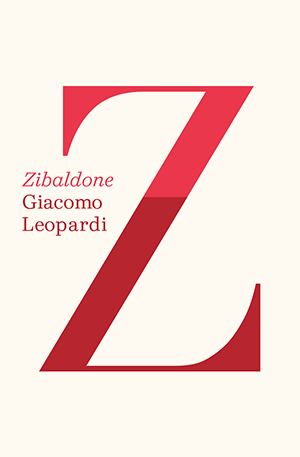
He was young. He made mistakes. He thought Germany would never produce a real philosopher and French would never be “the language of greatness, or of originality, in any genre.” He thought Chinese “will always be regarded as an uncultured or scarcely cultured language.” He upheld “the principle, namely,” that “the need for slavery among free peoples, is very true.” He believed “Almost all women are captivated by scorn” and to succeed with them you must “hate them, despise them, treat them solely with an eye to one’s own advantage and pleasures.” He thought no scientist would ever write well. He supposed, if only for a while, that “he who does not reason, does not err.”
Writing to himself, he took freedoms. He dared to describe the “character” of languages: German had none, French was “deformed” and “degenerate,” and Greek was “free, vast, and powerful.” He did not always find it necessary to know what he was writing about. He dismissed Kant as a dreamer without reading Kant. He thought the great scientific advances were matters of chance, lucky accidents. There are signs everywhere that alert his reader to be careful when handling Zibaldone.
Maxims and observations mingle with spite and cries of the heart. Dicta like “Happiness is always someone else’s” and “Everything true is ugly” express moods rather than any of “those great universal truths which we are in the process of observing and stating.” One of his most notorious sentences, “Everything is evil,” is no more than a proposition he tests against Leibnizian optimism. In every sense, some paragraphs are trials.
Who is Leopardi in Zibaldone? The philosopher who preceded Nietzsche, staring at nothingness, admiring the “warlike, active, and strong.” The moralist who understood “bad faith”—mala fede—before Sartre made it lexical. The poet who wrote like Baudelaire before Baudelaire, chanting pessimism at the rim of its echoing pit. Benedetto Croce thought that Leopardi “owed his European reputation to his avowed pessimism.” Cioran called Leopardi “the most pessimistic poet who ever was.”[3]
Throughout Zibaldone are variations of “no pleasure can satisfy” and “happiness is impossible.” There is joy of a kind. “I gave myself up entirely to the barbarous, convulsive joy of despair.” But having come to the end of it, after Leopardi gains his freedom, there is pleasure in Zibaldone, and pleasure of many kinds: study, sleep, conversation, esteem, travel, knowledge, truth, friendship, love, beauty, hope, poetry, fantasies, wine, and tobacco.
In Zibaldone, Leopardi stresses, “Ora quanta parte di un’opera è lo stile!” (Now what a great part of a work is style!). His style in Zibaldone is cumulative, paced for the long run. Sentences come to end breathless and sprawling. To write as much as he did, to read as he did and to think about it, to read and write letters and poetry, and meanwhile write Zibaldone, he had to write as fast as his hand could keep up. In Zibaldone, concision yields to fluency.
In 1827 Leopardi thought that “all literature (except perhaps German in recent years) is lacking in really good translations.” He translated Xenophon himself and in Zibaldone wrote much about the tasks of the translator. The Birmingham translation is worthy of him; everywhere I’ve looked I’ve found it to be complete and trustworthy, including its translations of quotations from Greek, Latin, Spanish, and French. Though accurate and clear, it is not easy. True to its original, the Birmingham translation makes more of a dare than an invitation.
Notes to Leopardi’s citations and paraphrases are excellent. I wished for more assessment of his linguistics. In addition to a translation of Leopardi’s own 1827 index, the Birmingham translation has an index of its own, more expansive, specific, and thorough than his.
Farrar, Straus and Giroux printed the book well. Typos are as scarce as ghosts. Italian editions are typically published in three plump volumes; FSG compressed its Zibaldone into one volume of 2,588 pages, printed on decently opaque Bible paper. The binding holds pages tightly yet allows them to open easily anywhere. Jonathan D. Lippincott’s clean and tight design follows the order of Italian editions, printing Leopardi’s marginalia and insertions as consecutive text, with bracketed numbers and running heads that make it easy to match the translation to Italian editions and to the manuscript, now in Naples.
James Thomson, poet of The City of Dreadful Night, published loving translations of Leopardi’s Operette Morali and Pensieri in 1880. In 2010 FSG published Jonathan Galassi’s translations of Leopardi’s Canti. One task remains: will the Leopardi Centre provide an English edition of Leopardi’s letters? No one knows Leopardi who is not acquainted with them.
University of Illinois


